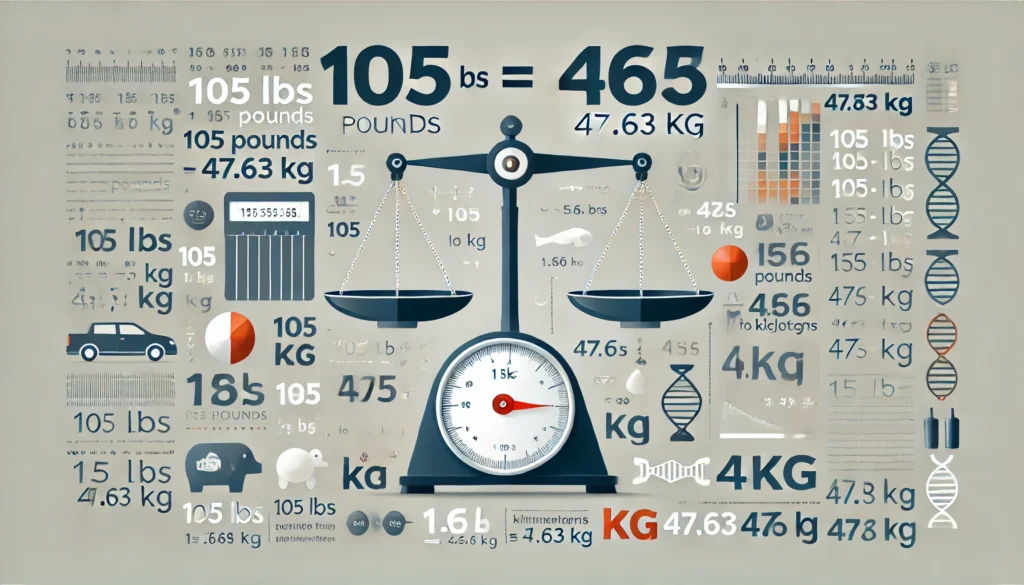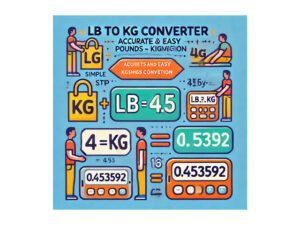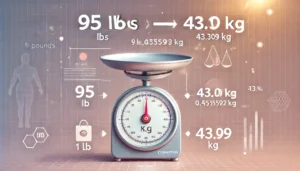Understanding weight measurements can sometimes be tricky, especially when switching between different systems like pounds and kilograms. If you’re trying to figure out how much 105lbs is in kg, you’re in the right place. In this article, we’ll explain the conversion, show you how to calculate it yourself, and give some context to help you understand this measurement better.
Why Convert 105lbs to kg?
Whether you’re checking your body weight, reading product specs, or traveling internationally, understanding both metric and imperial units is essential. In many parts of the world, the metric system is used—including kilograms for weight. So, if you come across 105 pounds, knowing what it means in kilograms helps you relate better in global contexts.
The Conversion Formula
To convert pounds (lbs) to kilograms (kg), you simply multiply the number of pounds by 0.45359237. This is the standard conversion factor accepted worldwide.
Formula:
Kilograms = Pounds × 0.45359237
So for 105lbs, it goes like this:
105 × 0.45359237 = 47.6272 kg
That means 105lbs is approximately 47.63 kilograms.
How to Do It Without a Calculator
Sometimes, you might not have access to a calculator. Here’s a quick tip:
Multiply the number of pounds by 0.45 to get a close estimate.
For example:
105 × 0.45 = 47.25 kg
While not exact, it’s close enough for everyday use.
Real-World Comparison
Now that you know 105lbs is around 47.63 kg, what does that actually feel like?
- Gym Dumbbells: A standard gym dumbbell set labeled as 47.5 kg will feel almost the same as carrying a 105lb weight.
- Average Adult Weight: In many countries, 47.6 kg would be considered a lower-end weight for adults—commonly seen among petite women or teenagers.
- Luggage Check: Airlines often have luggage weight limits around 23 kg per bag. So, two bags of 23.8 kg each would roughly equal 105lbs in total.
Understanding the Difference: lbs vs kg
Though both measure weight, pounds are part of the imperial system used mostly in the United States, while kilograms belong to the metric system, which is used worldwide.
Here’s a quick breakdown:
| Unit | System | Used In |
|---|---|---|
| Pounds | Imperial | USA, UK (partially) |
| Kilograms | Metric | Globally |
Knowing how to switch between them can save you from confusion and miscommunication, especially when traveling or studying abroad.
Why Accuracy Matters
Let’s say you’re cooking, shipping items, or dosing medication—weight accuracy becomes critical in such cases. A minor mistake in conversion could lead to incorrect measurements, especially in technical fields. That’s why understanding how 105lbs converts to kg precisely (47.63 kg) is more than just trivia—it’s a useful skill.
Other Common Pound-to-Kilogram Conversions
Here are a few quick conversions for context:
- 100lbs = 45.36 kg
- 110lbs = 49.89 kg
- 120lbs = 54.43 kg
You can see how each 10lb increase affects the kilogram value. This understanding makes it easier to mentally estimate weight differences.
Conclusion
Converting 105lbs to kg gives us approximately 47.63 kg. This conversion is not only useful but also important in a world where both metric and imperial systems are used interchangeably. Whether you’re working out, traveling, or studying abroad, knowing how to convert between pounds and kilograms helps bridge that gap.
So next time you come across 105lbs, you’ll know exactly what it means in kilograms—and why it matters.





